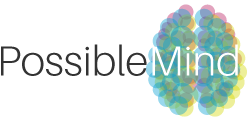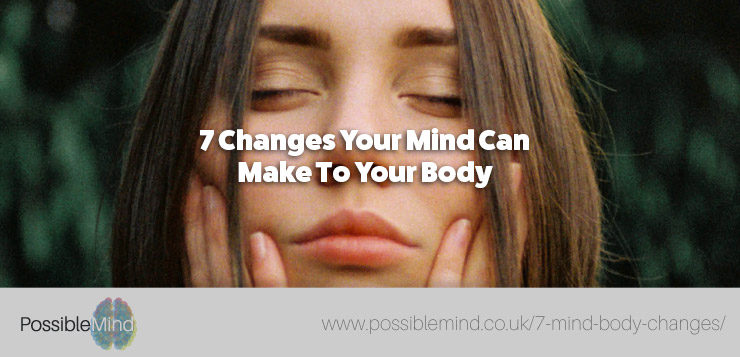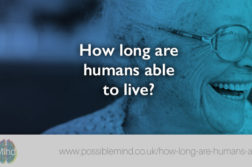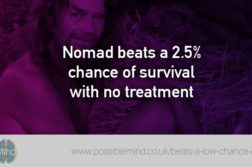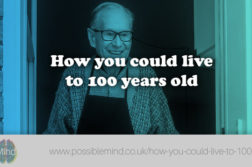The placebo effect has to be one of the all-time most baffling scientific phenomena we’ve run across. This process, by which you can fool the body into healing with nothing more than fake pills and bullshit, is more than just the power of positive thinking. The more they study it, the more scientists realize that either the brain has way more influence over our health than we realize or a huge number of the ailments we complain about are in fact just all in our heads.
Or maybe it’s both? Either way …
7 – You’re Only as Tired as You Think You Are
You don’t need some Gallup poll to tell you that people feel like they don’t get enough sleep — if you work with other human beings, you almost certainly have a co-worker who won’t shut up about how they feel like shit because their neighbor’s dog was barking all fucking night. And we all have days when we are that annoying co-worker.
But there might be an easy way to solve your sleep problems: stop whining about it.
Researchers at Colorado College hooked subjects up to a machine that measured their brainwaves while they slept. It kept track of how much REM sleep they were getting and, as the subjects were told, the amount of time you spend in REM has a huge effect on how rested you feel the next morning. Except the researchers were lying; nobody was measuring REM sleep (note: a significant proportion of human experimentation consists of just lying right to people’s faces).
Then, they randomly split the subjects into groups. One group was told they had spent plenty of time in REM sleep. The second group was told they had a poor night’s sleep, not spending much time in REM.
Now, you probably think we’re going to say that, due to the placebo effect, the people who were told they slept fitfully started yawning and asking for a blanket. That would at least make some kind of sense — it’s not much different than your friend who starts acting drunk after one sip of a Bud Light. But what actually happened was they gave both groups cognitive tests and found that, somehow, the first group performed significantly better. Just because they were told they had gotten quality sleep, their brains actually started working better.
So (from this study, at least) it would appear that you’re actually making it worse if you complain that you’re tired and keep reminding yourself that you didn’t get enough sleep. It would also appear that even if an over-the-counter sleep aid contains nothing but wax and sawdust, you’ll feel better the next day as long as you think it worked.
“Wow,” you might be thinking, “the human mind sure has a crazy ability to influence how we feel!” Actually, who said anything about the “human” mind? After all…
6 – The Placebo Effect Even Works on Animals
Animals have a notoriously shoddy understanding of medicine.
The whole point of the placebo effect seems to be the subject’s expectation — assuming it’s going to work is what makes it work. With your dog, you have to trick him into taking medicine by hiding it in cheese, so his expectation is just that he’s getting some awesome cheese. How could a sugar pill he doesn’t even know about do anything for him?
The answer is conditioning. It turns out that the expectation doesn’t need to be conscious. A study done on dogs showing signs of separation anxiety started by giving the animals regular doses of a real, effective medication. When the researchers swapped out the medication with a placebo, it kept right on working … even though they’re dogs, and they literally don’t know what pills are, or what they’re for, or even that they had a condition that needed treatment in the first place. Evidently their little brains still made a sort of Pavlovian connection between the treatment and the result (less anxiety). Somehow.
Going a different way, scientists wanted to see what would happen to some hamsters if the lighting was adjusted to trick them into thinking it was winter. In the wild, winter means there will be less available food, so animals need to be a lot more careful about how they use up their precious calories. The hamsters that were tricked into expecting winter conditions actually had their energy-burning immune systems power down in response.
Brains seem to do a sort of cost-benefit analysis when it comes to healing, and they’re less likely to commit resources to getting better if they think they won’t have the energy to spare. Sometimes it’s better to just stay sick than to starve yourself fighting it. The scientists who did the experiment believe this points to a possible evolutionary origin to some of our own placebo responses. If you think you’re taking real medicine, your body expects the healing process to cost less, so it might commit more readily to healing. Then again, this assumes the non-thinking part of your body can “expect” something, and when you start thinking through the implications of that, things get weird again. After all, doesn’t that imply there are abilities your body is simply hiding from you? Especially considering …
5 – Positive Thinking Can Improve Your Vision
Let’s be honest: most placebo medications work on conditions that are a little nebulous in the first place — a magic supplement intended to reduce joint pain might work simply because it’s hard to quantify pain, a hot tea that claims to reduce stress might work just because taking time to slowly enjoy a hot drink might be all you really needed. So how does this stuff work on things that are easy to quantify, like the accuracy of your eyesight?
Well, assuming you have normal vision, you can and probably do expect to read about the first two-thirds of an eye chart before you start struggling to make out the letters. So, just to screw with people, Harvard researchers created some eye charts with smaller-than-usual letters and administered the test to unknowing subjects. Because they still expected to struggle only with the last third of the chart, they ended up reading letters that were too small for them to make out on a normal test … and getting them right.
It gets stupider: they also found that just flipping the order of the chart, so the smallest letters are on top and the big E is on the bottom, had a similar result, with more people able to make out the smallest print because of the built-in expectation that the top of the chart is easier to read. If you wear glasses or contacts and feel like your prescription is just a bit off, you might have been too damn optimistic during your vision test.
Even your surroundings play a role. In another experiment, cadets who associated fighter pilots with good vision were able to perform substantially better on vision tests if they were taken while the cadets pretended to be a pilot in a working simulator. Just acting like someone with good vision was enough to trick the brain into actually making it happen.
We suppose you could say all that happened was the subjects were given the confidence to try to read the smaller print (where before they’d have just given up), but how does that make sense? Who goes into the eye doctor wanting to find out they have worse vision than they thought? If anything, you’re straining to avoid having the guy tell you it’s time to spend $400 on a new pair of glasses, right?
And it gets even weirder than that …
4 – You Can Trick Your Body Into Changing Its Shape
If you’re trying to lose weight, you already know the importance of eating right. Sticking to low-calorie foods is a staple of pretty much every weight-loss program for obvious reasons, but thanks to the placebo response, eating healthy might have a counterproductive side effect.
There’s a hormone in your gut called ghrelin that affects how hungry you feel and how fast your metabolism burns calories. The longer you go without eating, the higher levels of ghrelin you have, so you get hungry and your metabolism slows. Eat a Big Mac combo and the levels of ghrelin drop, you feel full, and your metabolism kicks into gear. Eat an apple and the ghrelin levels barely move. So, one reason why formerly obese people virtually always gain the weight back is that their ghrelin levels never adjust.
So when test subjects drank a fatty, high-calorie milkshake, it caused their ghrelin levels to drop more than when they were given a low-calorie, fat-free milkshake — but it works the same way even if the only actual difference between the two milkshakes is the labels. Just thinking that they were consuming the healthier option made them hungry faster and told their metabolisms it was OK to slack off.
Even stranger are the results of a controlled study involving groups of hotel maids. One group was told that their day-to-day work actually provided a lot of useful exercise. It turns out that just having this information was enough to lower their blood pressure, improve their body-fat ratio, and even help them lose weight, despite not actually getting any more exercise than usual. The only change was that they started to expect the benefits of exercise and that was enough to make them real … somehow.
If that sounds impossible, like maybe they just screwed up the study or skewed the results, consider this: it’s long been known that if a person is convinced that they’re pregnant, the expectation of symptoms can be enough to re-create pretty much every aspect of pregnancy short of actually having some sort of placebo baby.
Incredibly, there are lots of documented examples of this. Dr. John Radebaugh learned that the awkward way when he was called to help a woman in labor. He found her moaning in pain with a swollen stomach, looking like she was moments from delivering. As he helped her into a wheelchair, her water broke, soaking the doctor. You can imagine his surprise when he later found out the woman had never been pregnant at all. They call it pseudocyesis, a rare condition that can cause a woman’s body to produce certain hormones associated with pregnancy, only without the actual baby part. It can cause swollen stomachs and breasts, cravings, morning sickness, lactation, and even labor pains. Oh yeah, and it can sometimes fool pregnancy tests.
What about the water breaking that soaked Dr. Radebaugh? Another attending doctor at the hospital explained, “She just had a full bladder.”
Pseudocyesis occurs only between one and six times for every 22,000 births, so not all doctors are familiar with the condition. In 2008, two doctors in North Carolina were so fooled that they performed a C-section on a woman after trying to induce labor for two days. After cutting her open, they found an empty uterus.
3 – A Placebo Can Work Even if You Know It’s a Placebo
Now, if you’re hoping to take advantage of these placebo effects to feel more rested or score some maternity leave, you may have noticed a problem. How do you make yourself expect results if you already know you’re dealing with placebos? We have good news!
A study that used open-label placebos — pills that the patients knew were sugar pills — found that the effect can work even if you know you’re not taking real medicine. Researchers grouped patients with irritable bowel syndrome and gave some of them a bottle of pills labeled Placebo, then explained exactly what that meant and that the pills contained no actual medical ingredients.
They worked anyway. In the group given no pills at all, 35 percent of patients reported improvement after three weeks. In the group told to take sugar pills, knowing they were just sugar pills, 60 percent reported improvement.
The researchers say a big part of those baffling results came down to the patient being well informed about the placebo effect itself and how powerful it can potentially be. They were encouraged to stick to the ritual of taking two sugar pills a day and to try to suspend any disbelief they had about it. Their belief in the placebo effect became their placebo. But apparently they still had to take the fake pills to make it work?
2 – Doctors Prescribe Real Medication for Its Placebo Effect (and It Works)
If you’re not already convinced that the placebo effect pretty much pervades every aspect of your everyday life, consider this: the placebo effect isn’t just caused by placebos. In fact, some researchers think that it’s played a role in pretty much every medicine or treatment you’ve ever had. It’s hard to figure out exactly how much of a medicine’s benefit comes from the effect, but one clever study on pain medication Maxalt determined that up to half of the relief patients felt was actually the result of expectations rather than the medicine itself. With some other treatments, like antidepressants, the number might be as high as 80 percent. Holy shit!
It’s not like pharmaceutical companies don’t know this, by the way — we’ve talked before about how blue or green pills work better as sleep aids because of our associations with those colors, so sleeping pills are dyed blue specifically to increase the placebo effect they cause (because the night is … blue?). Drugs are also given names that help draw on our associations, with a name like Viagra meant to imply vitality and Niagara-like boner power. Yeah, some of that is just marketing, but that’s the thing about the placebo effect: the marketing becomes the truth.
And doctors realize it, too — a 2007 study in Chicago found that about half of them admit to prescribing medically useless treatments in the hopes of inducing a placebo effect. You can see this in the widespread prescribing of antibiotics to treat colds, despite having no real effect on those sorts of infections. If the patient thinks it will help, it might, so what’s the harm?
Well, in that particular case, it might lead to us being killed by antibiotic-resistant germs, but try not to get a negative attitude about that because it turns out the placebo effect works both ways. A study found that if patients taking the medication Finasteride were told that sexual dysfunction was a possible side effect, they were twice as likely to experience impotence. So you know that part at the end of drug commercials where they list possible side effects? Maybe try to cover your ears for that.
1 – The More Something Costs, the Better It Works
Obviously there is an entire snake-oil industry based on the idea that selling a random herb or oil as a cure just requires convincing people there’s science behind it. Hell, Best Buy even sells hilariously expensive TV cables that rely on pseudoscientific jargon intended to convince buyers they’re actually making a difference.
What most people don’t stop to consider, though, is how important the “hilariously expensive” part is. Not just to the seller’s ability to purchase a third beach house — to the buyer as well. A pain medication that costs $2.50 per dose is more likely to help you than one that costs only 10 cents — even if both pills are identical. That’s according to a study done at MIT showing that, since we expect more from expensive things, our weird brains can turn it into a self-fulfilling prophecy. And it’s not just the snake oil, either — you may have heard a pharmacist or doctor explain that the generic version of a drug works just as well as the more expensive brand-name. Turns out that’s not always true. Sometimes the brand-name version really does work better, despite being medically identical, and that’s partly because of the price tag.
In case you’re wondering, no, it doesn’t stop with medicine. One study found that people who thought they drank an expensive energy drink felt more alert and performed better on cognitive tests than those who had the same drink but were told it had a discount price. And while it’s no surprise that people claim to prefer wine they think is more expensive (since most people don’t know the difference anyway), when researchers actually scanned subjects’ brains, it was found that their brains really were enjoying the “expensive” wine more, even if the only difference in reality was the price tag, not the true quality of the wine.
And once you apply that logic to everything in your life, you’ll really start to wonder if the entire economic model of the modern world — and in fact, our entire culture — is based on a series of weird brain flaws. Think about it: what percentage of your budget is spent on products/services whose benefits are purely imaginary? Start looking at it too closely, and the whole system will probably fall apart.
This article was written by Davian Venture and was originally published on www.cracked.com on Fedruary 5th, 2015.
If you like this post you will also enjoy:
- Imagery Can Help You Recover from Injuries and Illness – Learn Mind Power With John Kehoe.
- Mind Power and Belief for Recovery and Healing.
- How Athletes Recover Quicker Using Mind Power.
- The Healing Power of Illness Book Overview.
Further Reading:
